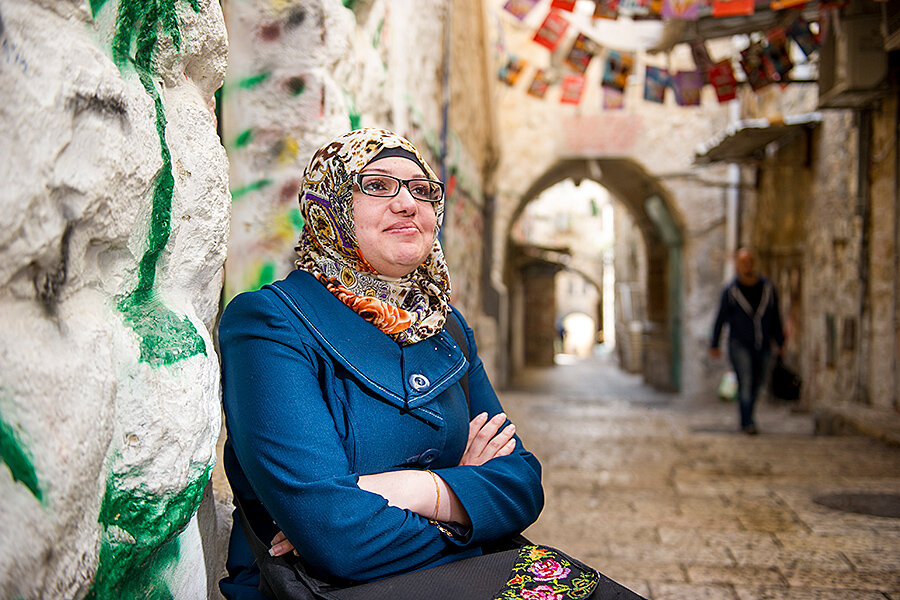The first thing I learned about Intisar Qaraeen, before I even met her, was that her name means “a great success or achievement; victory.”
Nothing could have introduced her better.
Intisar epitomizes triumph. She went to East Jerusalem’s notoriously bad public schools, yet at 25 she is fluent in Arabic and Hebrew and has an ever-improving command of English. In a conservative Muslim society, she has carved out a respectable independence. In a divided society where Jews and Arabs rarely interact, she is one of the few who dares to do so – in order to help her people.
She lives at the heart of the conflict, in Jerusalem’s Old City, where neither side wants to yield even a cobblestone in the battle for sovereignty. The Jerusalem municipality – run by Israeli Jews, since Palestinians boycott elections – is broadly seen by Palestinians as an oppressor. But she sees the practicality of dealing with city officials to secure better services for Arab neighborhoods, where the quality of life lags far behind that of Jewish areas.
It all started in January 2013. Intisar had just started volunteering with MiniActive, which encourages Palestinian women to take on a “mini” activism project such as a broken street lamp, or a pothole.
Jerusalem got hit with a foot of snow, and her mother – Intisar’s first recruit – called the municipality to report a collapsed wall near their home.
Three days later, they informed her mother it was fixed.
But it wasn’t.
She called to report it as still damaged, and the man asked her, “Are you sure?”
“Yes, I’m sure,” she replied.
A week later, she had the same conversation.
It took six months – with a team of engineers taking an Israeli organization to court – before the repairs were made.
“And now I have a beautiful wall near my house,” says Intisar, who has since increased her network of women activists to more than 1,200. “My mother … was the secret of my success.”
When she canvasses East Jerusalem neighborhoods to recruit new volunteers, their husbands often push back, some seeing it as beneath their dignity. “You don’t need any services from the [Israeli] occupation,” she often hears.
But Intisar reminds them that they’re paying for the services through city taxes, whether they use them or not.
To me, she represents the kind of pragmatism and commitment that’s needed to resolve this conflict. If only there were more individuals like her. Maybe there will be, thanks to a MiniActive branch for teens that she recently started.
“I believe that when I want to change, I need to begin the change from a young age,” says Intisar, who would like to see more young girls go to college, because of the influence they would have as educated mothers.
Even though she isn’t wholly optimistic about the future, she finds fulfillment in helping her community improve their lives.
“I do the maximum to give the people hope,” says Intisar.








